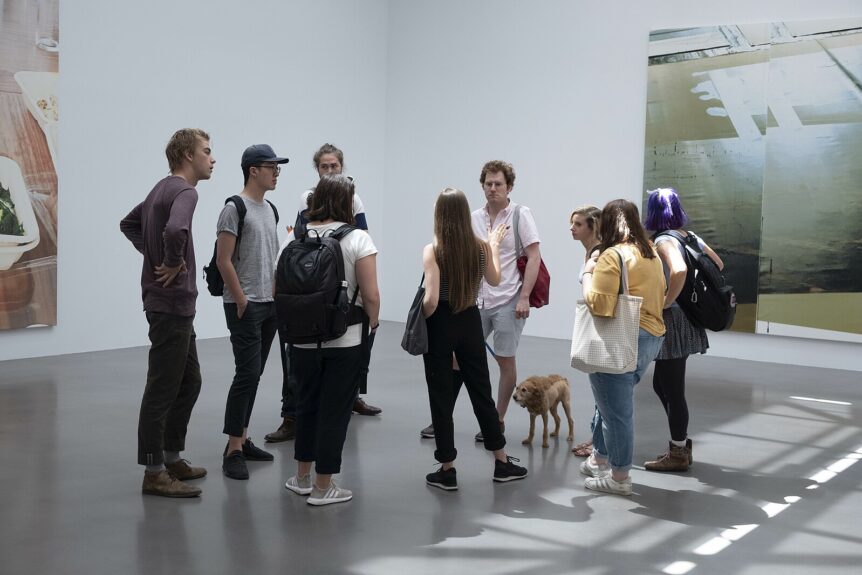The Curator’s Role in Artist Development: Collaboration and Mentorship
Introduction
How can art curators foster and support emerging talent? In this article, we are examining the multifaceted roles curators play in artist development, focusing on the themes of trust and mentorship, collaborative dynamics, and the ethical considerations that underpin these relationships. We’ll spotlight resources and projects exploring how curators shape artistic careers, engage communities, and navigate power dynamics within institutions and with artists.
Trust and Mentorship in Curatorial Practice
Trust and mentorship form the cornerstone of the curator-artist relationship, providing a foundation for open communication and risk-taking in artistic expression. By fostering a trusting environment, curators help artists explore and push the boundaries of their creative potential, while also guiding them through the complex landscapes of art careers and opportunities. This nurturing role can significantly influence an artist’s development and success.
- Role of Mentorship in Art Career Development: Outlines various ways in which mentorship can significantly impact an artist’s career and professional trajectory.
- Curating the Land: Artist-led Remediation Projects: Examines projects where artists and curators collaborate on environmental restoration, highlighting the mentorship roles curators adopt in such contexts.
- Angela Rosenberg on Building Trust: Angela Rosenberg discusses the importance of creating a supportive and trustful atmosphere for artist development.
Collaborative Dynamics and Community Engagement
Effective collaboration between curators and artists can lead to transformative community projects and exhibitions that resonate with diverse audiences. Curators often work closely with artists to ensure that their visions are realised in ways that engage and challenge the community, facilitating dialogues that might not otherwise occur. These partnerships can significantly enhance the cultural landscape and provide artists with a platform to influence and inspire.
- Curating as Caring: Engaging with Communities: Explores how curators can foster partnerships that benefit artists and communities, emphasizing the importance of nurturing and caring within these relationships.
- How Curators Work with Artists: Provides practical insights into the collaborative process between curators and artists, offering strategies to enhance these partnerships.
Power Dynamics and Ethical Considerations
Navigating the power dynamics and ethical considerations inherent in the curator-artist relationship is critical for maintaining integrity and respect within the arts community. Curators must balance their influence and authority with a commitment to supporting artists’ creative autonomy, ensuring that their interventions enhance rather than dictate the artistic process.
- The Co-dependent Curator: Ethical Considerations: Examines the ethical dimensions of curator-artist relationships, particularly the dependencies that can develop and their implications for artistic autonomy.
- Between Curator and Artist: A Problem of Authority: Discusses the delicate balance of power between curators and artists and the ethical challenges that may arise.
- Curator as Artist as Curator: Investigates the blurring lines between the roles of curator and artist, and how this impacts ethical considerations and power dynamics.
The role of the curator extends far beyond organizing art shows; it involves deep engagement with artists and the broader community, significantly influencing the cultural landscape. By understanding the nuances of these relationships and adopting inclusive and ethical practices, curators can significantly contribute to the flourishing of the arts sector. The resources provided in this article offer valuable insights into the various facets of these complex interactions, serving as a guide for both current and aspiring curators.
Image: Arts Practicum, CC BY-SA 2.0, via Wikimedia Commons


